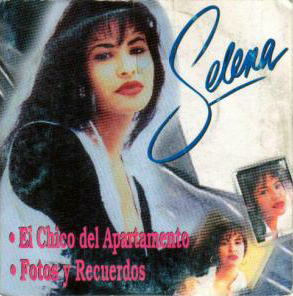
"Fotos y Recuerdos" is a song recorded by American recording artist Selena for her fourth studio album, Amor Prohibido (1994). It was released by EMI Latin in January 1995, as the fourth single. A cover version of the Pretenders' 1983 single "Back on the Chain Gang", "Fotos y Recuerdos" was written by Chrissie Hynde with Spanish-language lyrics by Ricky Vela. Lyrically, the song describes a lonely female protagonist who "kisses the photo of her [lover] each night before falling asleep."

The Dirt of Luck is the first full-length album from American indie rock band Helium. It was released in April 1995 on Matador Records and was produced by Adam Lasus.

1001 is an album by the American alternative rock band Dead Hot Workshop, released in 1995. A commercial disappointment, it was the band's only album to be put out by a major label.
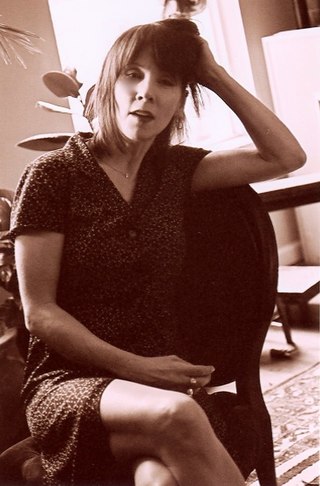
Libby Johnson is an American singer-songwriter. She co-founded the indie folk band 22 Brides in 1992, and released her debut solo album, Annabella, in 2006.
Zero Hour Records was an indie rock record label based in New York City. It was established in 1990 by Ray McKenzie, a former phone clerk for the Chicago Mercantile Exchange. The label's first release was McKenzie's own 12" single "The Ozone Hole." In 1995, Rising Tide Entertainment, a joint venture between Doug Morris and MCA Music Entertainment, announced it would be distributing and marketing Zero Hour Records's albums. In 1997, the label opened the $300,000 mastering studio Ground Zero in SoHo, Manhattan. According to Billboard, this studio was intended to "cater to the full range of independent labels in New York", not just Zero Hour.

Tings an' Times is an album by the Jamaican dub poet Linton Kwesi Johnson, released in 1991. It was Johnson's first album in six years. Tings an' Times also served as the title of a book of Johnson's poetry.
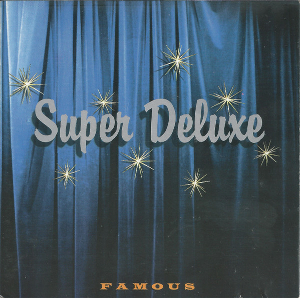
Famous is the debut album by the American band Super Deluxe, released in 1995. The album was remastered and rereleased the following year by the Warner Bros. Records subsidiary Revolution Records, with an extra track. The band supported the album with a North American tour.
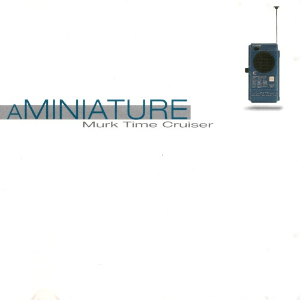
Murk Time Cruiser is the second album by the American band aMiniature. It was released in 1995. The band promoted the album by touring with Seam, Versus, and Venus Cures All, bands, like aMiniature, that included Asian-American members.

Broadcaster is the first album by the American band Triple Fast Action, released in 1996. "Revved Up" was the album's first single. The band supported the album with a North American tour. Broadcaster was a commercial failure.

People is an album by the American band Babe the Blue Ox, released in 1996. Like the band's other releases, the album title shares a name with a Barbra Streisand record.

Powerful Pain Relief is the second album by the American band Love Jones, released in 1995. The band was considered part of the mid-1990s "Cocktail Nation" trend of retro cocktail lounge groups.
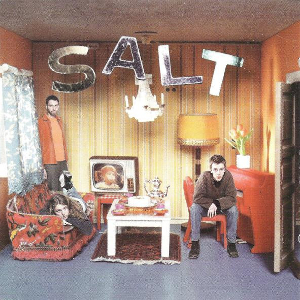
Auscultate is the debut album by the Swedish Salt. Island Records released the album in the United States in 1996.
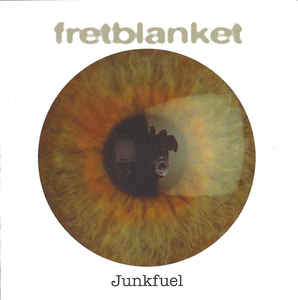
Junkfuel is the debut album by the English band Fretblanket, released in 1994.
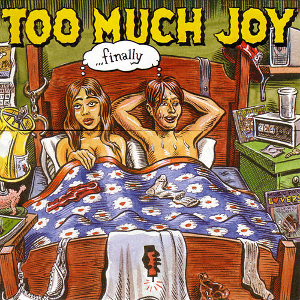
...finally is an album by the American alternative rock band Too Much Joy, released in 1996. Its first single was "The Kids Don't Understand".
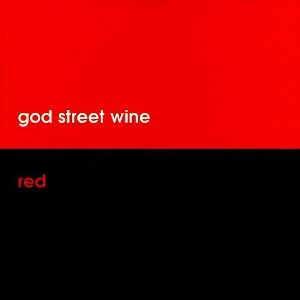
Red is an album by the American rock band God Street Wine. Initially put out in 1995 via the band's label, it was picked up by Mercury Records the following year, after Danny Goldberg caught their show at the Beacon Theatre.

Purplemetalflakemusic is the fourth and final album by the American alternative rock band the Fluid, released in 1993. It was the band's first album for a major label. The Fluid named the album after their music publishing company.

Scared Straight is an album by the American band New Bomb Turks, released in 1996. It was the band's first album to be released in Canada. New Bomb Turks promoted the album with a North American tour.

Delta Hurricane is the second album by the American musician Larry McCray, released in 1993. McCray supported the album with a North American tour.
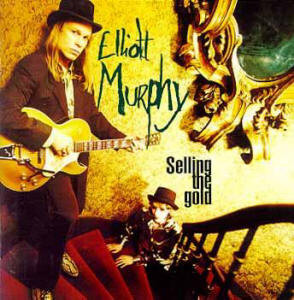
Selling the Gold is an album by the American musician Elliott Murphy, released in Europe 1995. It was released in the United States in January 1996. Murphy, who had for years been selling better in Europe, shot a video for "Love to America". Murphy supported the album with a North American tour.

Pomegranate is an album by the American band Poi Dog Pondering, released in 1995. It was first released in a limited edition by the band's label, with a national release by Bar/None Records. The band supported the album with a North American tour. Pomegranate sold more than 40,000 copies in its first six months of release. "Catacombs" was released as a single. An EP, Electrique Plummagram, contained dance remixes of some Pomegranate tracks.



















